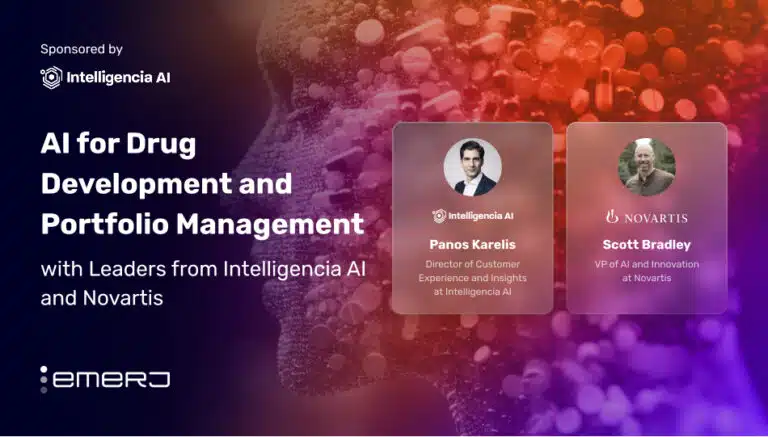Over the last decade, public introductions of advanced technologies from big tech firms, such as Google Glasses and Meta’s (then-Facebook) Metaverse platform, were met with infamous disappointment. In stark contrast, initial iterations of generative AI (GenAI) in large language models and other tools deployed across the global economy by smaller players like OpenAI in the last few years are having a far more lasting impact. A recent report from McKinsey noted that the staying power of GenAI could add $2.6 trillion to 4.4 trillion USD annually to the global economy.
According to additional reporting from the OECD, GenAI is being used in various finance applications and offers associated benefits such as improved risk assessment, fraud detection, and customer service. The emergence of GenAI is disrupting traditional financial institutions and is becoming an essential part of technology in the BFSI Industry.
Emerj Senior Editor Matthew DeMello recently spoke with Fabrizio Burlando, Head of Digital Labs at Mastercard, on the ‘AI in Business’ podcast to discuss the current wave of generative AI tools and their impact on the financial services sector.
In the following analysis of their conversation, we examine two key insights:
- Data protection techniques for responsible AI governance: Guidelines for establishing explicit policies promoting responsible AI governance and protecting private data while deploying advanced machine learning and analytics tools for identification, encryption, and anonymization.
- AI-supported decision-making for fraud prevention: Leveraging support systems for efficient and accurate decision-making in fraud prevention and anti-money laundering while also exploring operational optimization, improved forecasting, and enhanced customer engagement.
Listen to the full episode below:
Guest: Fabrizio Burlando, Head of Advisors Consulting and Digital Labs, MasterCard
Expertise: Fintech, Payments, Consulting
Brief Recognition: Fabrizio is a global executive with 25 years of senior management experience across five continents, specializing in fintech, payments, and data. Fabrizio holds an MBA from INSEAD (Paris and Singapore) and a Master’s in Bioelectronics from the University of Genoa (Italy).
Data Protection Techniques and Principles for Responsible AI Governance
Fabrizio opens his podcast appearance by explaining how GenAI can train itself on vast datasets and develop its own rules without being explicitly programmed. The self-training aspect of GenAI represents a shift from first-generation AI capabilities derived from rule-based systems where humans had to provide specific instructions.
However, he emphasizes that GenAI operates on a statistical model, not a deterministic one. In other words, the output is a probable result, not a binary certainty. Fabrizio uses the analogy of having many interns producing work that still needs verification.
He highlights the importance of a responsible approach to AI that directly addresses concerns about security, privacy, and transparency. He mentions the need for ethical AI applications and emphasizes that consumer data should be customer property. The responsible use of data is crucial, and there should be awareness of how AI systems operate, especially regarding governance and ethical considerations.
Fabrizio explains that much of the process of developing responsible AI systems in financial systems comes from having explicit and specific company policies regarding how customer data is used and handled. In articulating a vision for responsible approaches to customer data, Fabrizio outlines four principles:
- Ownership: Consumers own the data they produce.
- Control: Consumers have control over their data.
- Benefit: Consumers can benefit from their data, as seen in the example of personalized recommendations on Netflix.
- Protection: Companies are responsible for protecting customer data.
Fabrizio mentions using advanced tools like Truata, which involves identification, encryption, and anonymization, to safeguard data. He emphasizes that while the data is valuable, it is treated with sufficient privacy measures at Mastercard, including two-factor authentication.
AI-Supported Decision-Making For Fraud Prevention
Fabrizio emphasizes the importance of companies understanding the specific problems they aim to solve with AI rather than adopting it as a generic solution. While GenAI is widely discussed and can serve as an effective conversation starter, he cautions that there may be tools better suited for specific use cases.
He provides examples of how AI, particularly in decision-making support, can have a significant impact. He discusses the constant recalibration of models through self-learning, citing applications in fraud prevention and anti-money laundering.
“[When we observe money laundering] very often, the funds are taken from an account and then sent to a number of different accounts. We can now trace movements of funds across the network, and we can block the transaction after a few hops. And that’s something that is the coulier of artificial intelligence, where it learns the different behaviors of the fraudster.”
– Fabrizio Burlando, Head of Advisors Consulting, MasterCard
He expands on the broader applicability of AI, citing collaboration with a global retailer where they combined spending data with macroeconomic data and applied AI models, leading to a sixfold improvement in revenue forecasts. These systems also helped increase or decrease stocks per forecasts and impacted profitability positively.
Fabrizio outlines the three key areas where AI plays a significant role across financial services organizations.
- Automating repetitive tasks: Fabrizio cites examples like character and image recognition that drastically reduce the time needed for processes such as card applications.
- Supporting decision-making: Supporting decision-making in areas such as cyber fraud, anti-money laundering, and customer value management, where algorithms analyze data to propose actions in an automated manner, subject to client consent.
- Hyper-personalization: Tailoring marketing materials to individual customers, achieving hyper-personalization by learning from user behavior and preferences. Fabrizio also touches on the shift towards personalized content generation, extending beyond movie recommendations to diverse applications like fashion.
Fabrizio discusses the considerations when choosing between traditional AI and generative AI. He suggests that traditional AI might be the preferred choice if a clear, precise answer is needed without room for error, as in a fraud detection system. However, for situations that require a more creative approach, he sees GenAI as having more significant potential, particularly in disrupting creative industries.



















